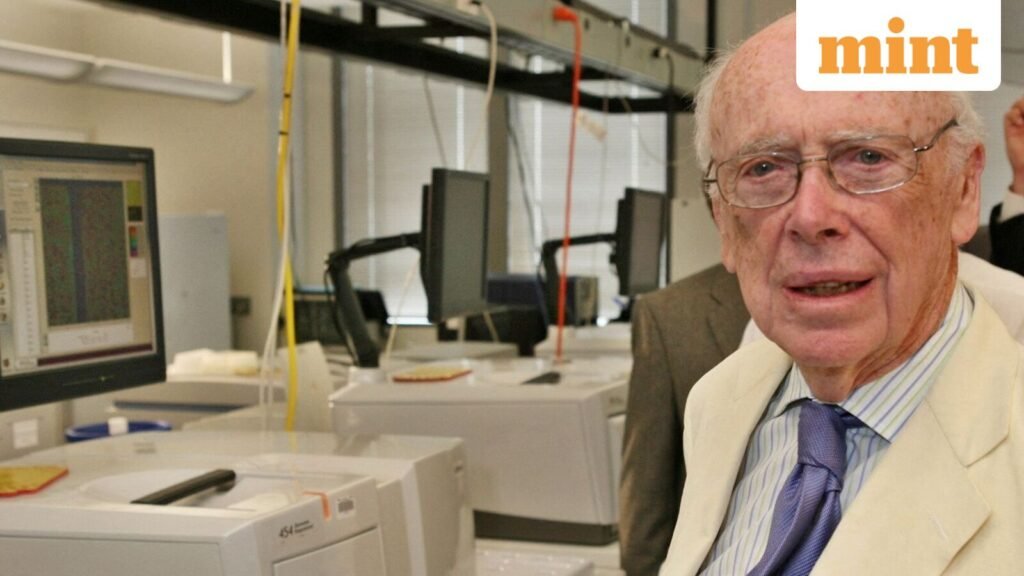James Watson, the Nobel laureate American biologist and co-discoverer of the double-helix shape of DNA, passed away on Thursday at the age of 97. Watson breathed his last in hospice care in East Northport on Long Island in New York.
The news was confirmed by the Cold Spring Harbor Laboratory, where he was based for much of his career.
Watson had been transferred to a hospice this week from a hospital where he had been treated for an infection, reported New York Times, citing his son, Duncan.
Nobel Prize
Watson shared a 1962 Nobel Prize with Francis Crick and Maurice Wilkins for discovering that deoxyribonucleic acid, or DNA, is a double helix, consisting of two strands that coil around each other to create what resembles a long, gently twisting ladder, reported AP.
James Watson’s career and controversy
According to the New York Times, Watson lived on the grounds of the Cold Spring Harbor Laborator. In 1968, he took over as the director and transformed it into one of the world’s major centers of microbiology. In 1993, he stepped down from the position and took a largely honorary position of chancellor.
Watson was ostracized by the scientific establishment after his reputation was tarnished by comments on genetics and race.
The NYT report stated that his official career there ended ignominiously in 2007 after he ignited an uproar by suggesting, in an interview with The Sunday Times in London, that Black people, over all, were not as intelligent as white people.
How James Watson’s discovery helped
Watson’s discovery played a crucial role in medicine, crime-fighting, genealogy and ethics,
The discovery helped in identifying human remains and criminal suspects from DNA samples and tracing family trees.
Watson never made another lab finding that big. But in the decades that followed, he wrote influential textbooks and a best-selling memoir and helped guide the project to map the human genome, said AP report.
The Nobel laureate also picked out bright young scientists and helped them. And he used his prestige and contacts to influence science policy.
Medal sold in auction
A Bloomberg report said that in 2014, Watson said he would sell his Nobel Prize medallion as his controversial remarks had made him an outcast in the scientific community.
Watson also said he needed the money and would donate some of the proceeds to scientific research. The medal sold at auction for $4.8 million.
“Because I was an ‘unperson’ I was fired from the boards of companies, so I have no income, apart from my academic income,” he said, reported Bloomberg quoting Financial Times.

